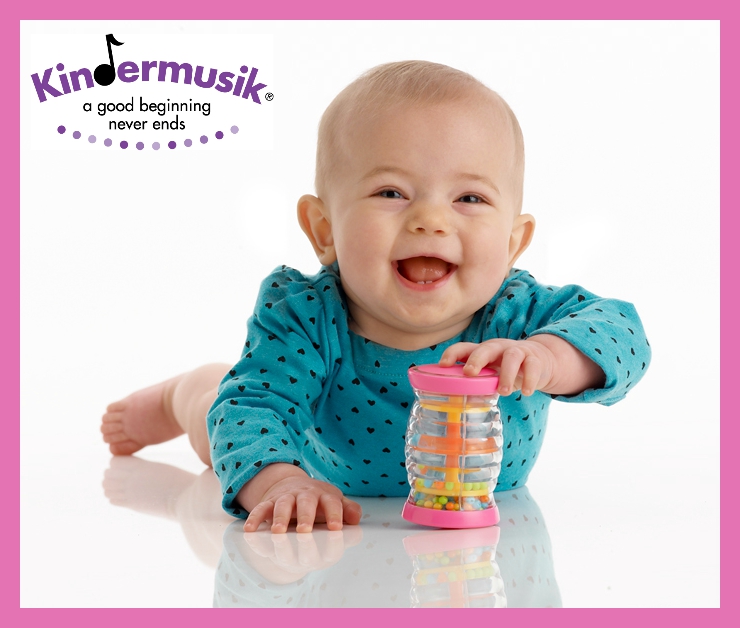Getting your baby ready for school??? Sounds like that’s rushing things. And that’s the last thing any of us want… to rush those precious early years and lose out on those wonderful opportunities for bonding, learning, and making memories. The window of learning does open early, and it is open the widest during the first years of life.

So the question becomes how best to make the most of that window while it’s open, giving your child every advantage in a way that is meaningful, lasting, and appropriate – developmentally, cognitively, physically, and emotionally.
Enter Kindermusik.
Kindermusik was developed on the firm belief that parents are a child’s first – and best! – teacher. From your very first class with your sweet little infant to that proud moment when you watch your big kid graduate from Kindermusik, everything we do in Kindermusik is intentionally designed to help and inspire you as your child’s “teacher.”
Here’s how Kindermusik helps you get your child ready for school – and for life! – in the most perfectly delightful, perfectly appropriate, and perfectly memorable of ways.
- Kindermusik strengthens the critical emotional bonds between parent and child that are essential for successful learning to take place, now and later on.
- Songs and rhymes provide a vital foundation for the early stages of language development.
- Music and movement support and enhance the formation of neural networks, all of the neurons and synapses that the brain may eventually prune if not used and exercised in the early years.
- A musical environment develops listening skills, teaching children how to be more aware and more focused.
- Rocking and swaying stimulate the vestibular system which is responsible for balance and coordination.
- Bouncing, clapping, and instrument play ingrain a sense of steady beat. Steady beat is foundational to speech development, motor skill development, logical thinking skills, and even verbal organization.
- The rich multi-sensory environment experienced with Kindermusik means that children are able to make even stronger cognitive connections and associations with various concepts.
- Experiencing the patterns and sequencing in songs, recordings, and dances improves the cognitive skills that are necessary for success in math later on.
- First experiences in Kindermusik help your little one become more creative and confident problem-solvers.
And when your child does transition into starting school, wherever that may be, you can still count on Kindermusik to ease the transition and help you capitalize on all of the incredible academic, cognitive, and social advantages that early childhood music classes give.
Learn more about the benefits of early learning with Kindermusik. Try a free class today!
Contributed by Theresa Case who, for over 20 years now, has loved helping eager little learners and their parents get the very best start in Kindermusik in the classes offered at Piano Central Studios in Greenville, SC.

